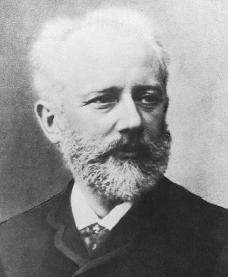Pyotr Ilyich Tchaikovsky
(7 May 1840 – 6 November 1893)
This Russian composer worked for years as a civil servant until he was able to study music with the Russian Musical Society and helped forge a new national identity by embracing western European ideas. Although Tchaikovsky had shown interest in music at a very young age, music was not an acceptable profession at the time in Russia. He worked at the Ministry of Justice until he was allowed to take classes with Nikolai Zaremba at the Mikhailovsky Palace and then with Anton Rubinstein at the Saint Petersburg Conservatory. The Russian Musical Society had been set up by Rubinstein and the Grand Duchess Elena Pavlovna, the aunt of Tsar Alexander II, who wanted to foster Russian musical talent.
Tchaikovsky endeavored to bring Russian music to the rest of the world by adopting and adapting western musical forms and combining them with Russian idioms to create his own unique style that set him apart from all of his contemporaries. He was criticized by his peers for diluting the national music; but he remained popular throughout his career. The acceptance he received all over Europe only validated the claims of his critics that he had strayed too far from the music of his own country.
Tchaikovsky considered: “Inspiration is a guest that does not willingly visit the lazy ... Truly there would be reason to go mad were it not for music ... To regret the past, to hope in the future, and never to be satisfied with the present: that is what I spend my whole life doing ... You see, my dear friend, I am made up of contradictions, and I have reached a very mature age without resting upon anything positive, without having calmed my restless spirit either by religion or philosophy. Undoubtedly I should have gone mad but for music. Music is indeed the most beautiful of all Heaven's gifts to humanity wandering in the darkness. Alone it calms, enlightens, and stills our souls. It is not the straw to which the drowning man clings; but a true friend, refuge, and comforter, for whose sake life is worth living ... There is no doubt that even the greatest musical geniuses have sometimes worked without inspiration. This guest (inspiration) does not always respond to the first invitation. We must always work, and a self-respecting artist must not fold his hands on the pretext that he is not in the mood. If we wait for the mood, without endeavouring to meet it half-way, we easily become indolent and apathetic. We must be patient, and believe that inspiration will come to those who can master their disinclination ... I sit down to the piano regularly at nine-o'clock in the morning and Mesdames les Muses have learned to be on time for that rendezvous.”
http://www.tchaikovsky-research.org/
http://www.biography.com/people/pyotr-ilyich-tchaikovsky-9503375
Romeo and Juliet (Overture-Fantasy)
http://www.youtube.com/watch?v=6rL0u-8nyp4
1812 Overture
http://www.youtube.com/watch?v=-BbT0E990IQ
Swan Lake
http://www.youtube.com/watch?v=9rJoB7y6Ncs
The Nutcracker
Sleeping Beauty

No comments:
Post a Comment